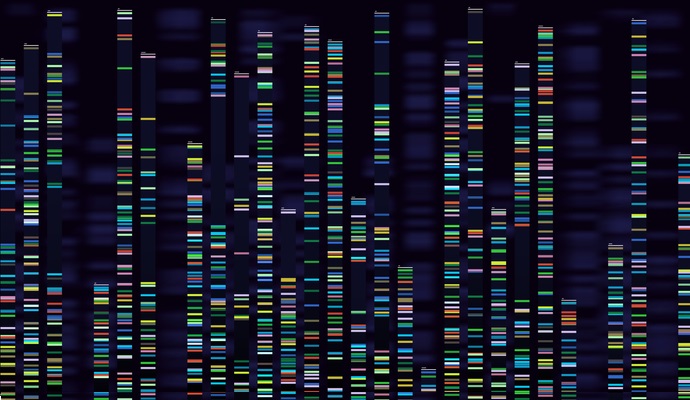Mayo Clinic Uses Genomic Sequencing, AI to Predict Treatment Response - HealthITAnalytics.com
SOURCE: HEALTHITANALYTICS.COM
FEB 16, 2022

Mayo Clinic Cancer Center researchers are validating the use of genomic sequencing and artificial intelligence to predict treatment response in patients with gastric cancer.
“Gastric cancer is among the leading causes of cancer-related death worldwide,” Tae Hyun Hwang, PhD, the Florida Department of Health cancer chair at Mayo Clinic Cancer Center, said in a press release.
Most patients with gastric cancer are treated with chemotherapy and sometimes immunotherapy. However, not all patients benefit from these therapies.
“We sought to use genomic sequencing to build a model that predicts the likelihood that a patient will derive benefit from chemotherapy or from immunotherapy,” Hwang said.
The research team created and implemented a machine-learning algorithm that integrated genetic data from over 5,000 patients to develop the model. The team then developed a molecular signature made up of 32 genes that can help guide patient care decisions.
“We were pleased that our 32-gene signature provided not only prognostic information but also predicted patient benefit from chemotherapy and immunotherapy,” Hwang said. “In particular, we were surprised that the 32-gene signature we identified was able to predict a patient's response to immunotherapy because identifying reliable biomarkers for immunotherapy response in patients with gastric cancer has been a challenge for the field.”
According to Hwang, the 32-gene molecular signature still needs prospective validation. However, Hwang said it would eventually identify patients who are likely to respond to chemotherapy and immunotherapy and those who are not.
“Similarly, we would also be able to identify patients who are unlikely to benefit from chemotherapy and immunotherapy, thereby sparing them the potential side effects of these therapies,” Hwang explained.
In addition, the research team is working to create new assays based on the expression level of a single, or mutated, gene to make biomarkers more accessible and easier to use in clinical settings.
“We are working on artificial intelligence algorithms that utilize diagnostic histopathology images to identify patients most likely to derive benefit from immunotherapy,” Hwang continued. “We are also studying the molecular mechanisms of immunotherapy resistance made available by the machine learning and artificial intelligence approaches that we have developed in our lab.”
The National Cancer Institute has designated the Mayo Clinic Cancer Center as a comprehensive cancer center, which means the center meets the rigorous standard created by NCI. The center studies new treatment possibilities, focusing on patient-centered care while training future cancer experts and bringing cancer research to all communities.
LATEST NEWS
Artificial Intelligence
Eerily realistic: Microsoft’s new AI model makes images talk, sing
APR 20, 2024
WHAT'S TRENDING


Data Science
5 Imaginative Data Science Projects That Can Make Your Portfolio Stand Out
OCT 05, 2022

Eerily realistic: Microsoft’s new AI model makes images talk, sing
SOURCE: INTERESTINGENGINEERING.COM
APR 20, 2024
80% of AI decision makers are worried about data privacy and security
SOURCE: ARTIFICIALINTELLIGENCE-NEWS.COM
APR 17, 2024
AI Is Set To Change Fertility Treatment Forever
SOURCE: HTTPS://CODEBLUE.GALENCENTRE.ORG/
NOV 06, 2023
AI-empowered system may accelerate laparoscopic surgery training
SOURCE: HTTPS://WWW.NEWS-MEDICAL.NET/
NOV 06, 2023
Here’s Everything You Can Do With Copilot, the Generative AI Assistant on Windows 11
SOURCE: HTTPS://WWW.WIRED.COM/
NOV 05, 2023
Tongyi Qianwen, An AI Model Developed By Alibaba, Has Been Upgraded, And Industry-specific Models Have Been Released
SOURCE: HTTPS://WWW.BUSINESSOUTREACH.IN/
OCT 31, 2023




